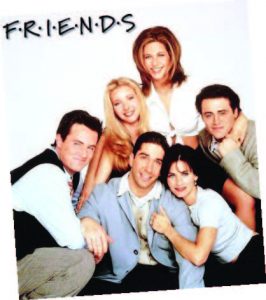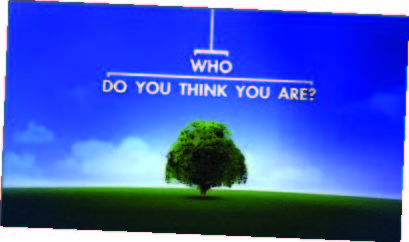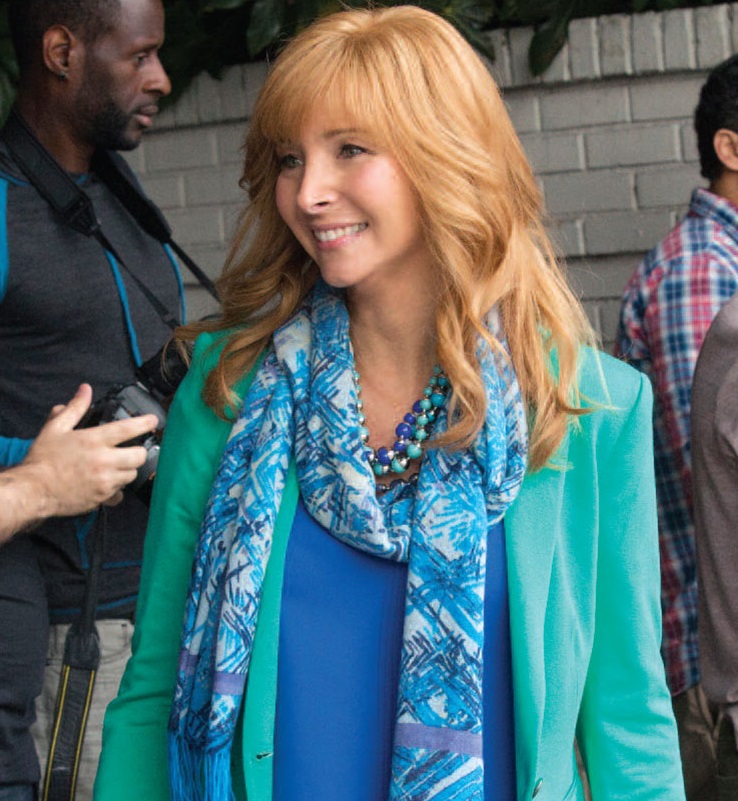There are certain roles that even the most accomplished actresses won’t touch. Making an infuriating, exasperating character believable—and, more importantly, likeable—is right at the top of that list. It is the definition of working without a net. For Lisa Kudrow, portraying these women has become almost second nature. From her brilliant run as loopy Phoebe on Friends to her quasi-authority figures in the cable series Web Therapy and The Comeback, she has elevated the portrayal of the terminally clueless to an art form. As EDGE’s Gerry Strauss discovered, comedy for Lisa is serious business…but also fun and games.
EDGE: Do you recall what first inspired you to go into show business?
LK: I liked performing, even in nursery school. I liked coming home and doing the entire album of Alice in Wonderland that they played for us during that time—standing on the fireplace, just reciting the entire thing. How anyone sat through it is beyond me. I am the third child, by many years, and the kind of child that wanted attention. Positive attention. Maybe that’s why.

NBC/Warner Bros. Television
EDGE: How did your parents pass along the work ethic you’re known for?
LK: My father always said, “I don’t care what any of you do as long as you do the best you can at it. If you’re a garbage collector, I’d expect you to be the best garbage collector.” I applied that to schoolwork and tried to do the best that I could, and I always tried to just work as hard as I could.
EDGE: Were you a competitive kid?
LK: Yes. I had a certain level of competitiveness. I wanted to score better than other people.
EDGE: There was a long period where you didn’t perform.
LK: I put it away for high school and college. I put it in a drawer and locked it. But that love of performing was always in there.
EDGE: When you got back into acting there were some near misses and rejections—Saturday Night Live, Frasier. Did you set a deadline for yourself in terms of getting out?
LK: I don’t remember a deadline, but do I remember when the initial blows happened having a very brief consideration that maybe this isn’t meant to be. But I just couldn’t allow that to happen. That meant I had to figure out how to keep going. I would just replay every recording I had in my head of someone saying No, I think you’re really good, so that I could just be full of that. It’s like taking vitamins. I had to supplement with the encouraging things people I trusted were saying.
EDGE: You turned a minor character in Mad About You—Ursula the waitress— into a keeper. Was that the career plan?
LK: I don’t think I was that clever. In fact, the way that role came about was a last-minute call in the morning. “Can you go to Mad about You? They’re offering you this role. The character doesn’t even have a name. It’s called ‘waitress’… and you have to be there in an hour.” I didn’t even know what the lines were. It was two lines. These were agents saying, “I think you should pass.” I thought, I can’t pass. I need to work. That’s the best show on TV and you don’t say no. I got in my car and I drove down there. I remember I was a little nervous because I had no idea what I’d be doing and I just thought, No matter what, just listen and respond, and be funny. When I saw the lines, I just thought, No problem. She’s an idiot. Okay. She’s an idiot…got it.
EDGE: How did Ursula become a regular character?
LK: At the end of the week, Danny Jacobson pulled me over and said, “I think you’re funny, and I would like to write this character more, and have her in this show more, if that is okay with you. Just five more episodes.” I was about to start figuring out what kind of day job I would have. Because of Ursula, I didn’t have to look for work.
EDGE: How did you develop the character of Phoebe in Friends?
LK: The great thing I remember about Phoebe was that the audition piece was this monologue in the pilot that gives her whole back-story. My take on that really was to give a lot of definition to this person, that she’s cheerful about—or just refusing to see—the horrible, traumatic things that happened in her life. Her mom killed herself and then her stepfather went to jail, and she lived in a car, and she thought that was okay. That’s who she was going to be. Just this person who didn’t acknowledge reality the same way everybody else did.
EDGE: Was there any aspect of just playing Phoebe for all those years that frustrated or bored you?
LK: No, I was not bored, and I didn’t feel like, Oh my God, I’ve got to do something else and I’ve got to get out of here. Just period, I did not. I loved going there every day. I loved laughing hysterically with these five other people that cracked me up every day. And I mean it. It’s true. There were some seasons we’d come back and I’d think, I don’t know what I am doing. LeBlanc one time took me aside, so smartly, and said, “Look, there’s no more work to do because you know who this person is. You keep trying to do work, and there’s no work to do. You’ve got it down. Just relax.” He was right. I was that good student thinking, I put this much work into my homework before so I need to do the same now. This was the cushiest job, with family. We’d been through fires, the six of us together.
EDGE: You also were free to do films in between seasons.
LK: That was the other fantastic thing about Marta, David, and Kevin. They allowed the schedules to work so that we could do a film even when we were doing the show.
EDGE: In The Comeback, the Valerie Cherish character is a former sitcom star using a reality show to launch herself back into the spotlight—a story about a woman who allowed a sense of paranoia and fear about her career define who she was. Did you experience anything like that after Friends?
LK: Maybe there’s something wrong with me but I was not worried or nervous about what was coming next. I’d shot an independent film when we were done with Friends and I thought, I’d be thrilled to just do those forever because I don’t need money now, thanks to Friends. I can do whatever I want. But then this great idea happened for The Comeback, and it was sort of, Well, we’ve got to do it now. We went into HBO to tell them what the idea was and they said, “Yes, so just do it. Write a script.” We wrote a script fast, in three weeks or something. Crazy. Then, we shot the pilot and they said, “Let’s do 12 or 13 of these.” But I completely agree with what you were saying—everyone has some of those fears and insecurities in them. The thing with Valerie was that she was desperately trying to look like she was holding it all together and in control of it all, that her hands were firmly on the reins of her own career. And they weren’t.
EDGE: Now as the series reboots, it’s nine years later—
LK: And she’s a little more desperate and has a little less pride. But the DNA is still the same. Valerie is doing a pilot presentation with some USC film students for Andy Cohen, and she’s looking over clips of what she’s been up to since The Comeback got cancelled. She believes that she was a pioneer of reality television. She’s still acting as if she’s the instructor for the audience, teaching everyone about the life of an actor and what the entertainment business is like.
EDGE: How do you, as real-life role as a mom and wife, view the invasion of privacy that Valerie and her family deal with on a reality show like The Comeback?
LK: I have respect for the privacy of my family. If I speak about them, I have their consent. Valerie is so desperate for the spotlight, she always compromises the privacy of her loved ones. To her, that spotlight is synonymous with “the greater good.”
EDGE: You tend to portray some distinctly flawed characters. Is that more fun than playing someone who is normal?
LK: Yes, much more fun. To me, that’s what funny—people who have no idea how they’re coming off. Valerie thinks she’s pulling it off with her composure, her dignity, her phony-baloney way of talking, and she thinks people are eating it up as if it’s 1978. That cracks me up.
EDGE: The same could be said for Web Therapy’s Fiona Wallice.
LK: She’s so insensitive…but really, she’s not even aware that what she’s saying would be disturbing to anybody. That kind of insensitivity makes me laugh. Those things…I just love it when people have no idea how they come off. There’s just a disconnect.
EDGE: What are the biggest sources of pride in your career?
LK: Okay. I’d say The Comeback, only because I got to actually create that one and write it and produce it, as well as be in it. I am proud of that. It was like nothing anyone had ever seen before, and I think it was good work. I am proud of Web Therapy because, again, it’s like nothing that anyone had ever seen before, and we weren’t sure if just two people talking and improvising would sustain anything—and whether the people we have doing it would be willing to sit and improvise. Who Do You Think You Are?—even though I didn’t create it—that’s the kind of thing that wasn’t really on American television. I am glad we talked NBC into doing it. Then, there has to be Friends. I have to say Friends.
EDGE: Contractually?
LK: (laughs) That’s so funny! No. No. I am proud of Friends because that was the first time that characters on a show were all young adults, and I remember the network was really nervous at the time. They’re like, “Who’s the grown-up? There is no grown-up in this show. You guys have got to put a grown-up in there.” Now, looking back, that’s really funny. Because, after Friends, everything changed.
 WHO DO YOU THINK YOU ARE?
WHO DO YOU THINK YOU ARE?
In 2010, executive producer Lisa Kudrow brought the British genealogy documentary series Who Do You Think You Are? to American television. The program, which paired celebrities with genealogists to uncover stories from their family history, ran for three seasons on NBC and now airs on TLC. Kudrow herself starred in one episode, traveling to Belarus and Poland. Others who appeared include Spike Lee, Gwyneth Paltrow, Martin Sheen, Edie Falco, Zooey Deschanel and Jim Parsons.
I saw the show in the UK when I was there in 2007, and thought it was the best show I’d ever seen. I didn’t understand why it wasn’t on in the U.S. There are these fantastic details from history that have a personal effect on families and alter the line of a family, so it’s very emotional. I thought everything about it was fascinating, and it was so well done.
When I got back here, I found out that Alex Graham created the show and then it turned out he did some of my favorite PBS programs, including Manor House and Colonial House. They were so well done. I thought this was not a fluke—he knows what he’s doing. We called him up to see if he wanted to do it here and he said Yes.
At first I wasn’t even considering participating. My father had done a lot of research and made a huge family tree. I wasn’t thinking we would have a story, coming from an Eastern European Jewish background. I was more interested in other people and their stories. But Alex said, “You should do it.” I realized that, of course, I should do it because I am asking other people to do it. I need to know what I am





